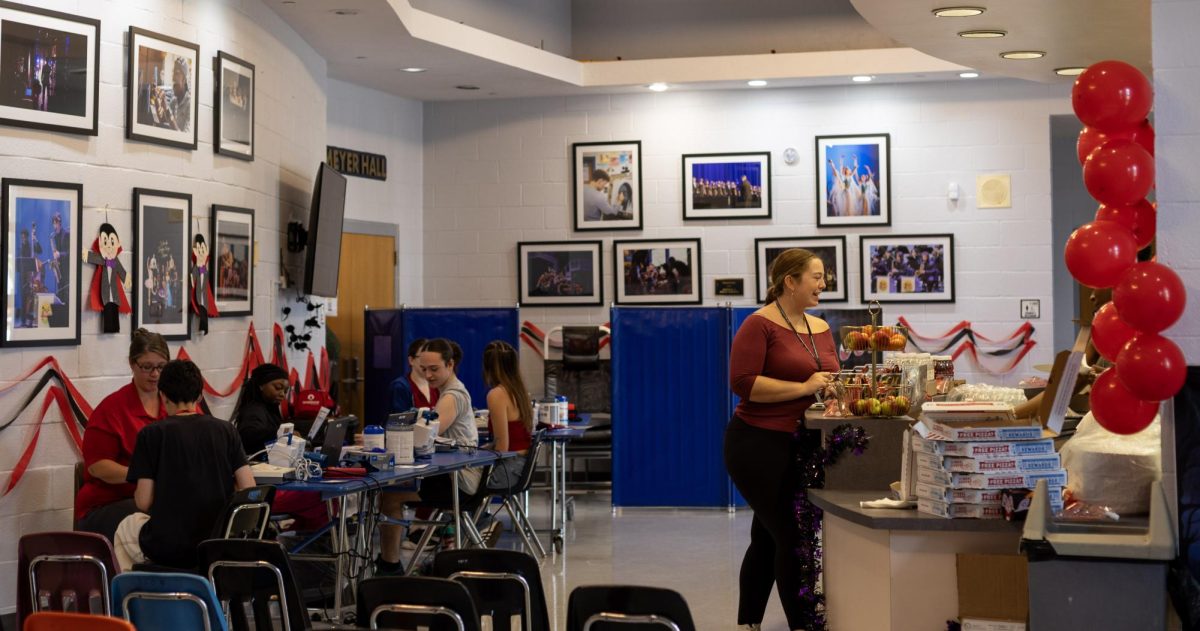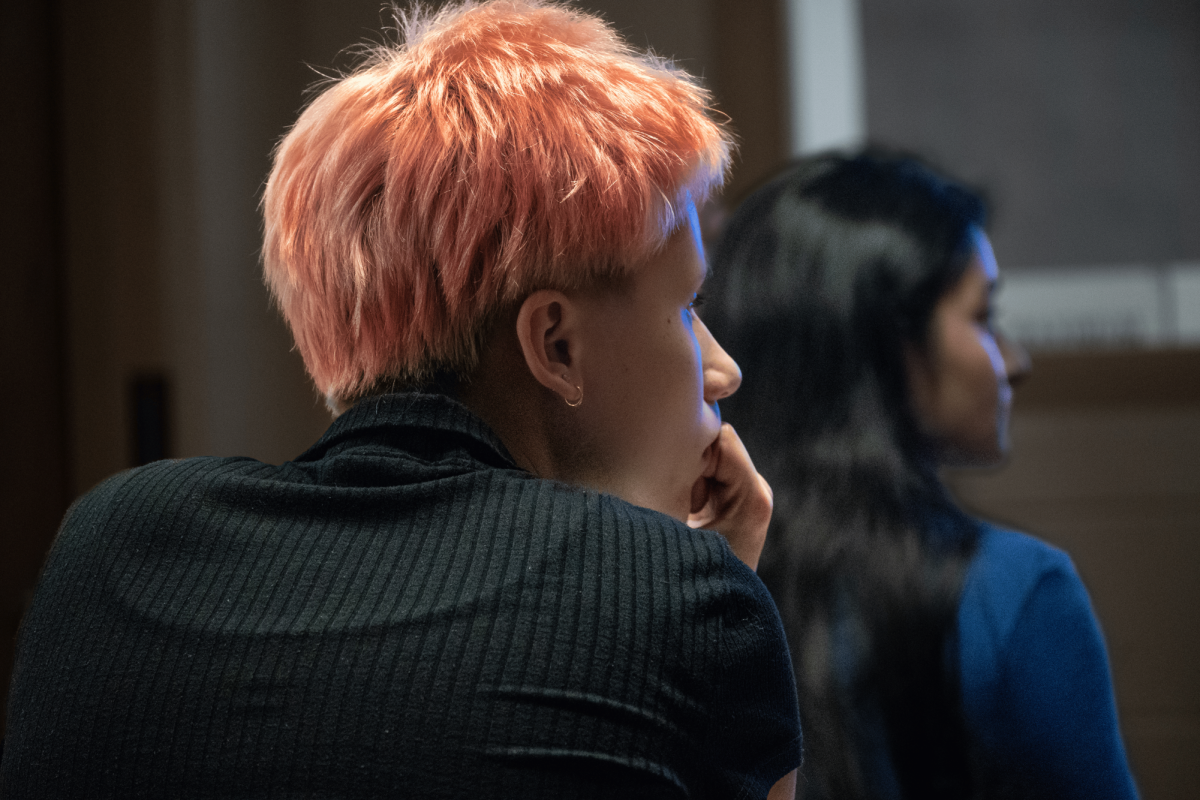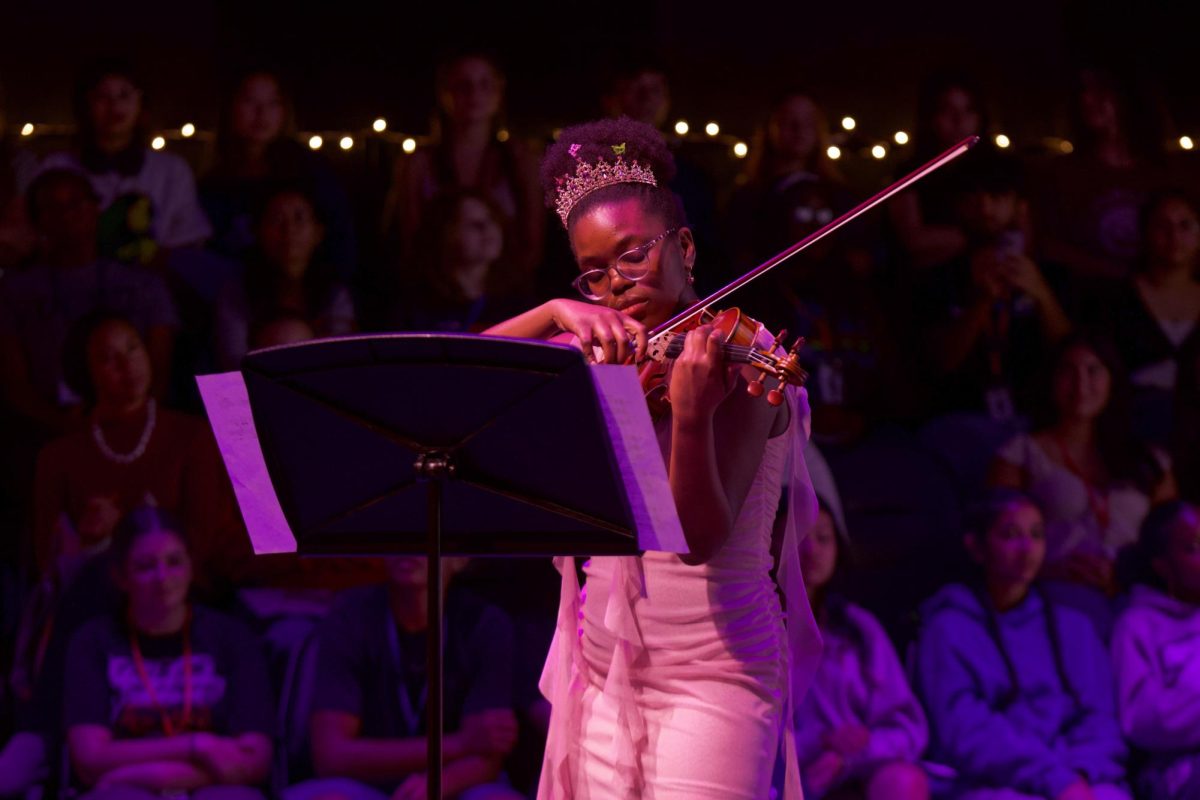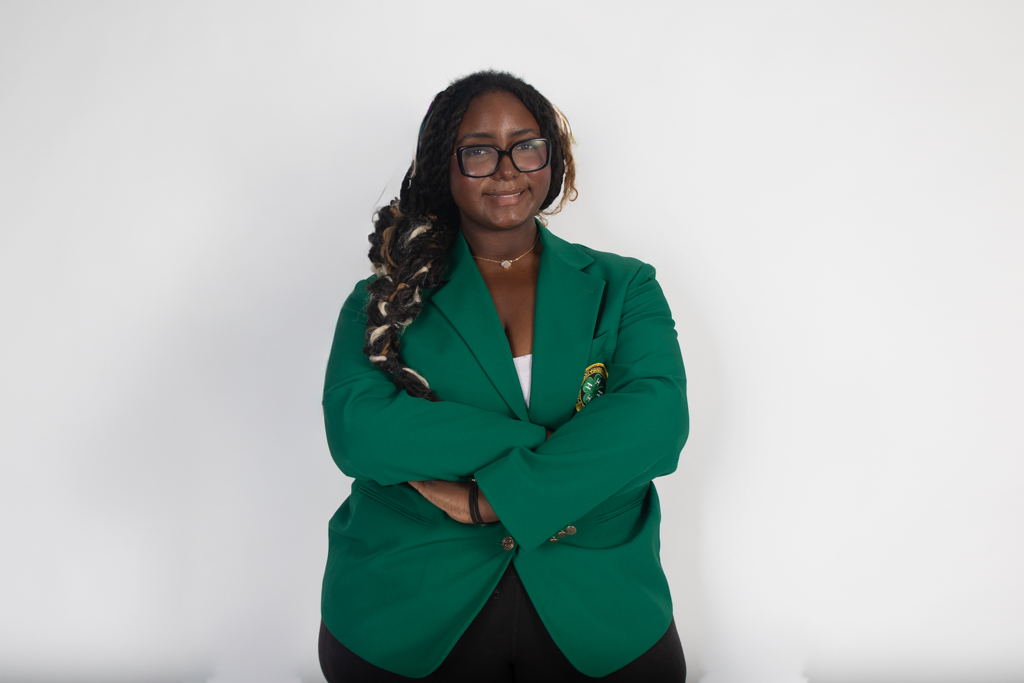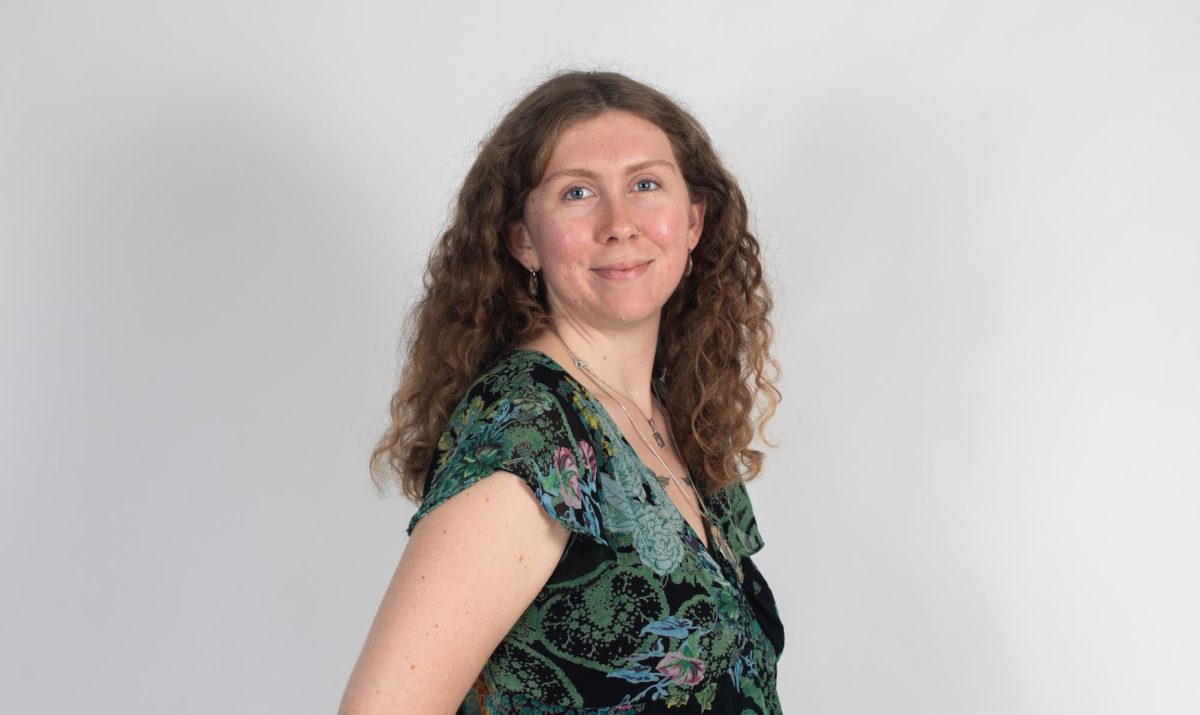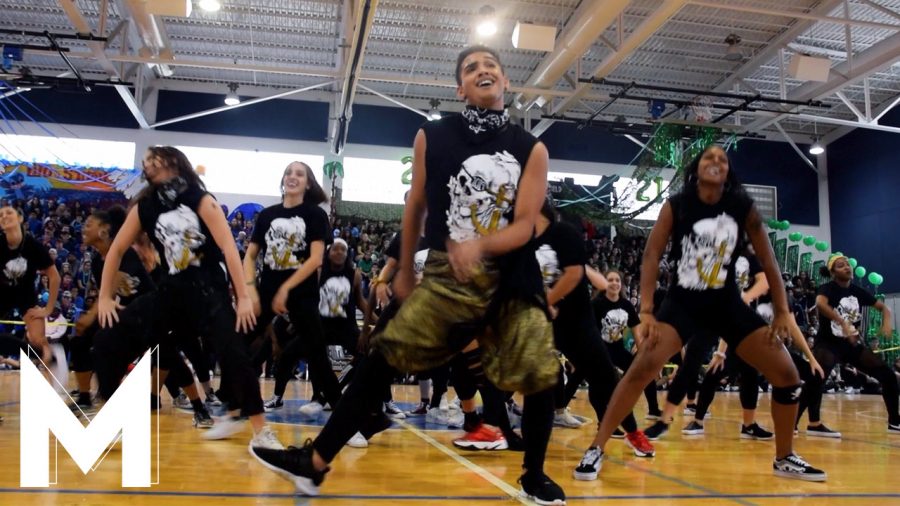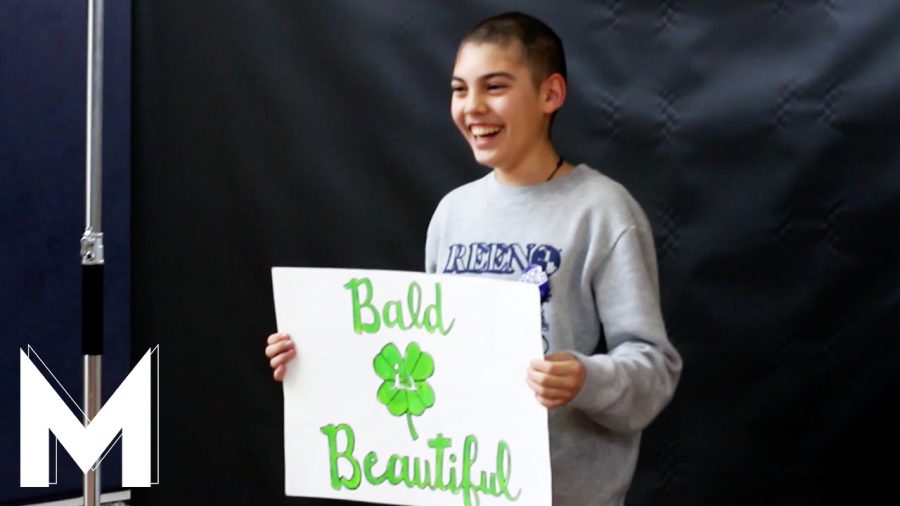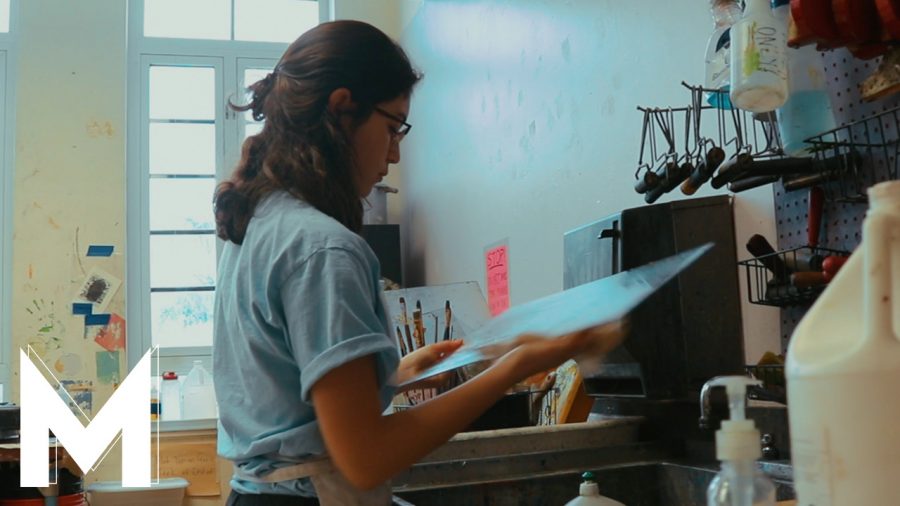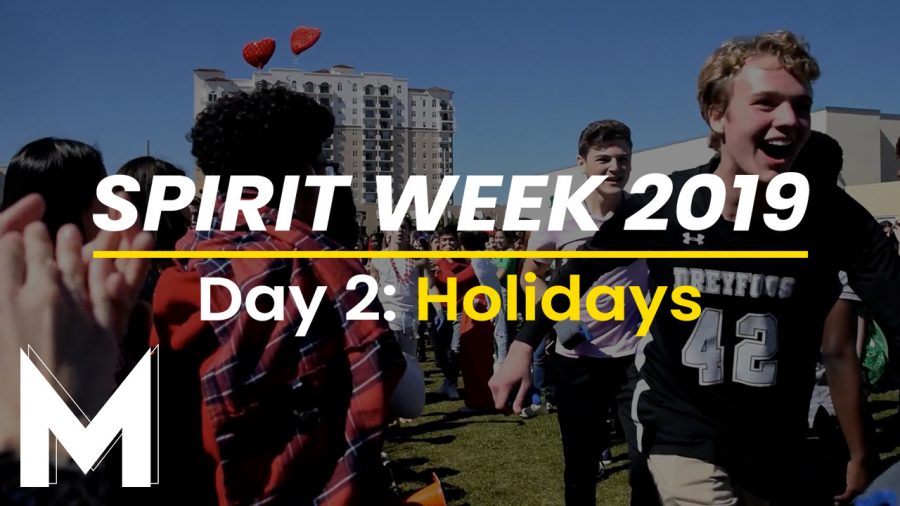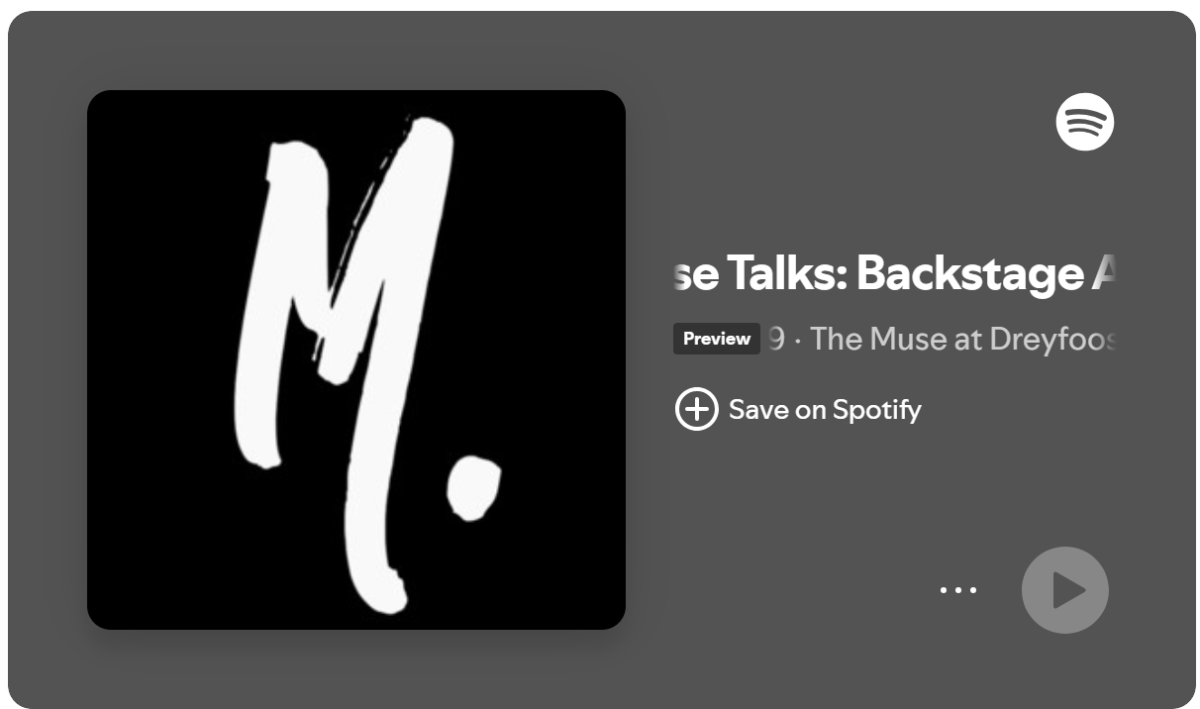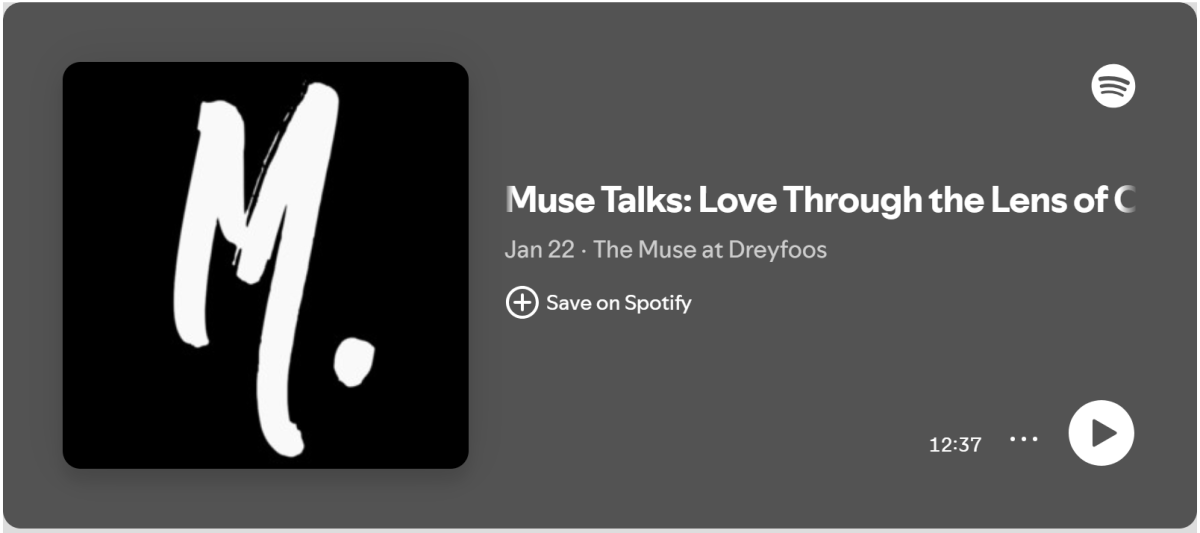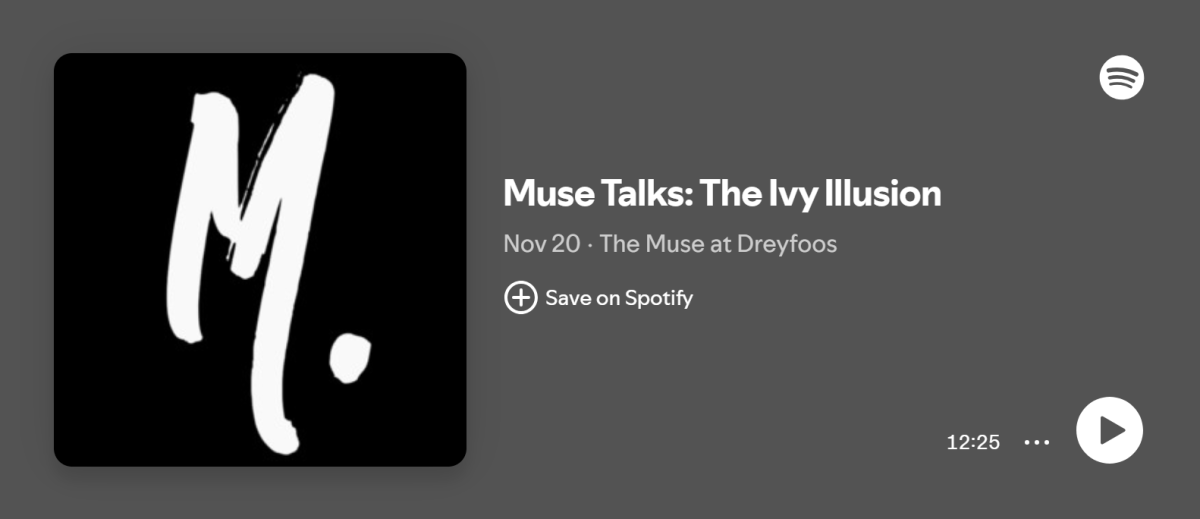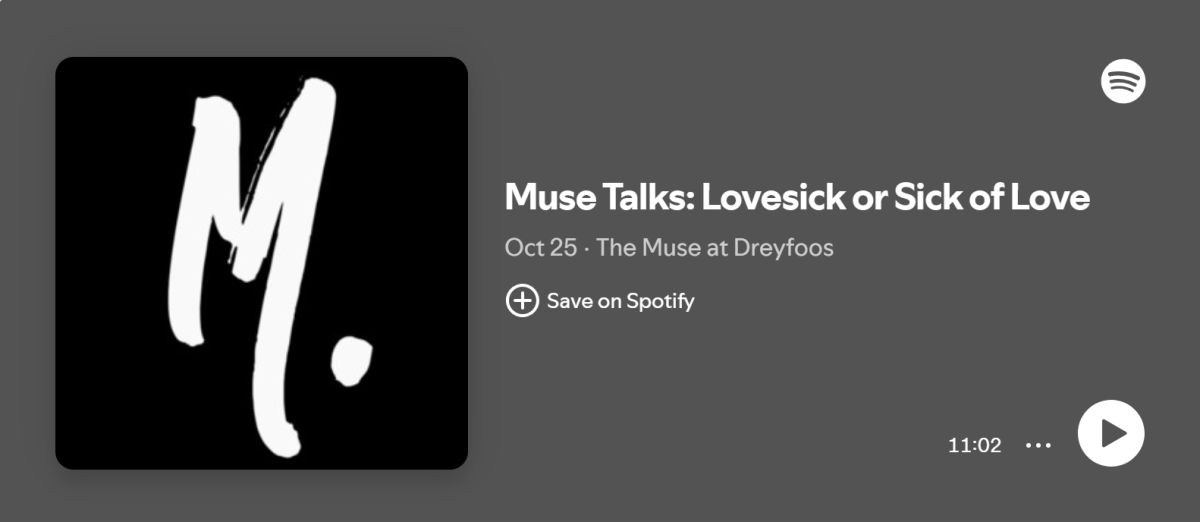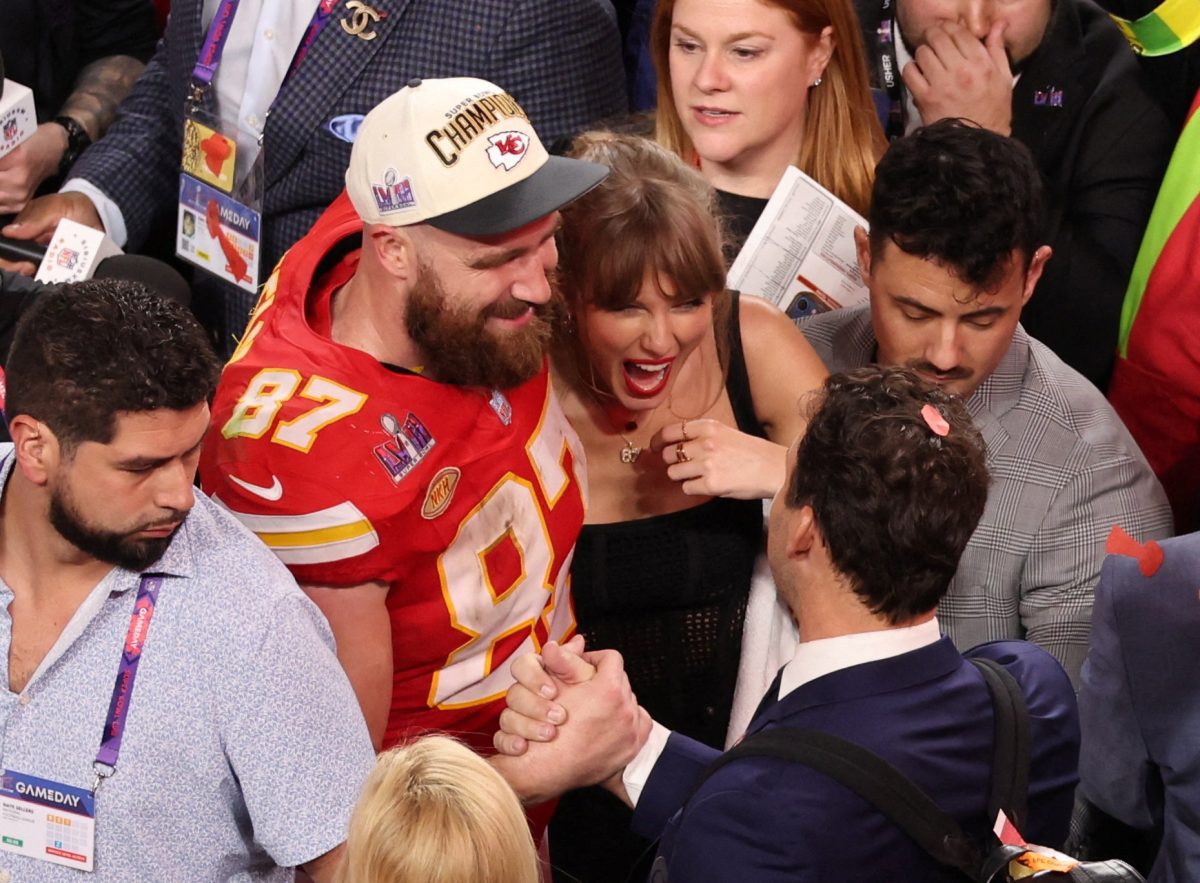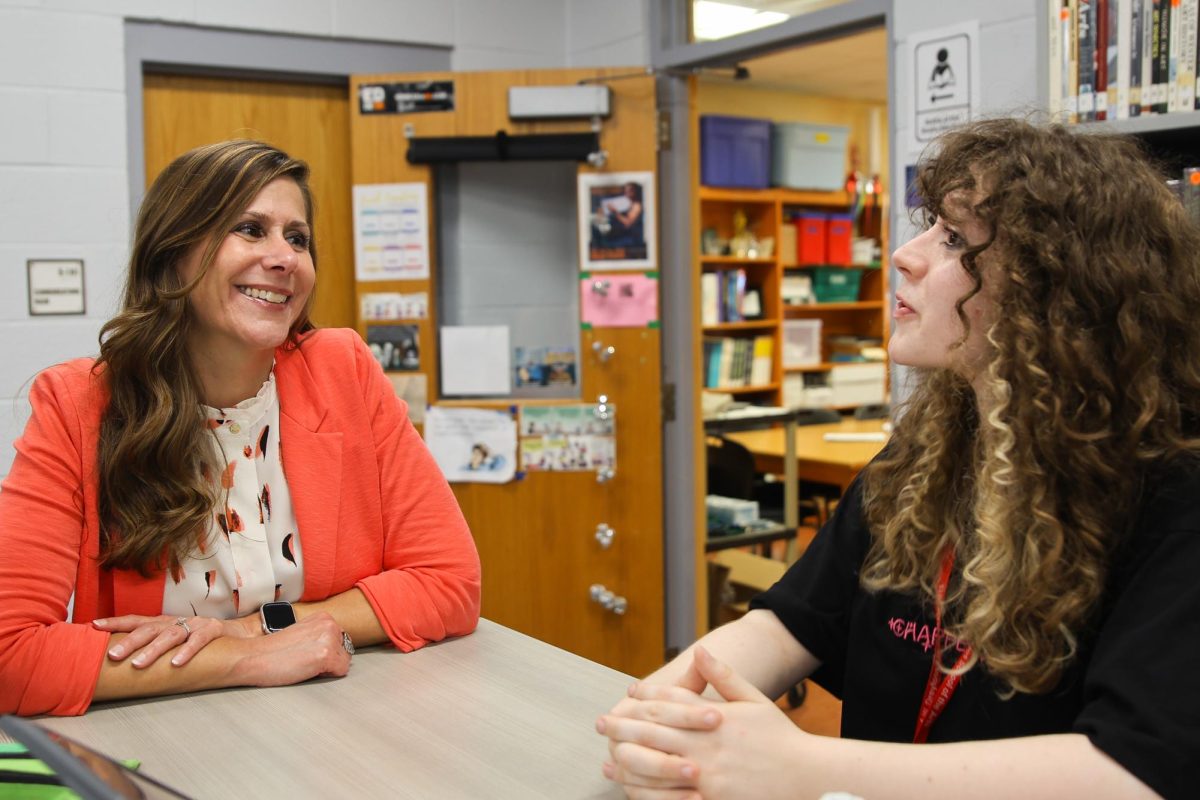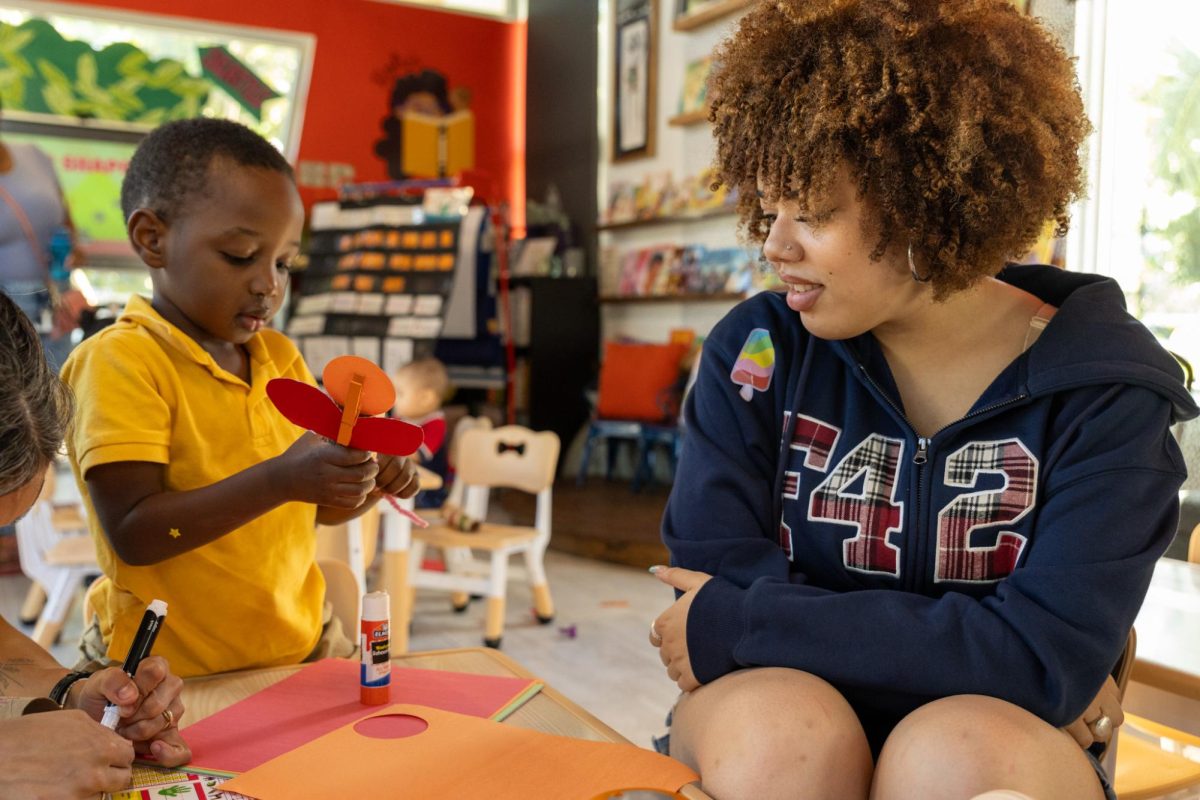It was a slow day at Rohi’s Readery as vocal senior Olive Cleary finished up her lesson of the day: The meaning of music in life. She asked the children sitting at the table in front of her what the main idea was, and a 10-year-old girl responded, “Music is a way to express yourself, and I’m going to do that now through my singing.”
“It makes my heart so happy,” Cleary said.
Cleary’s intern position at the readery is called “Justice Builder,” meaning she is required to teach a program to students and remain present in the workspace. Though she said that every day at the readery is different, she also leads a consistent initiative to teach children ranging from three to 18 years old about music. One lesson was a “Rock and Roll” activity, where she taught the children about different music genres and then had them paint rocks with musical symbols.
“I love these kids, and everyone else that works there loves these kids,” Cleary said, smiling. “Family is not just by blood, it’s also by connection.”
Digital senior Aaliyah Keys, also a Justice Builder, leads a program educating the students on African American history. The readery is located in the Northwest Historic District, a predominantly Black neighborhood. Taking advantage of the local Heart and Soul Park and Sunset Lounge, Keys introduces parts of West Palm Beach African American history to the children of the readery. She described it as being the “best experience” as she is also able to learn about her own community leaders alongside them.
“The biggest thing that I think people need right now is to be involved in community,” Keys said. “This really has allowed me to hear different stories, to learn about so many different types of people, and to be around people in a healthy way where no one’s dependent on technology. We’re just engaged in human connection and conversation.”
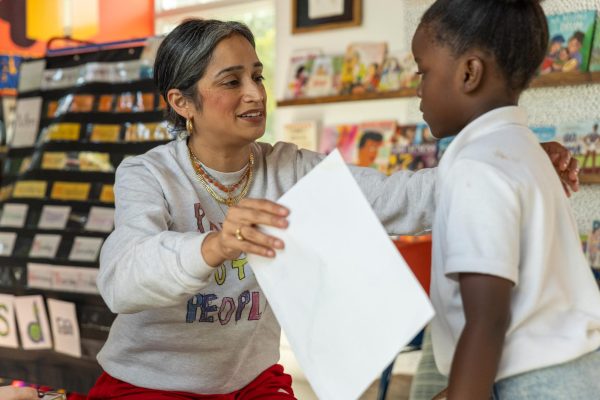
Pranati (Pranoo) Kumar, the owner and founder of Rohi’s Readery, named the nonprofit in memory of her grandmother Rohini, who was an education activist who fought for children’s and women’s rights during colonial rule in India. Kumar said that for her, it’s always been about continuing “the work of those who came before.” The internship program she has developed passes this leadership down to the next generation.
“We tell our interns that when you’re here, we truly believe in youth empowerment,” Kumar said. “We want you to lead, and we want you to be as creative as possible. I think our interns have really taken the lead with that, and now our middle school interns are seeing them as role models and are already stepping up in their leadership capacity too.”
The readery supports student-led programs from Black history to poetry, chorus to mental health and wellness, and art history to basketball. Each student intern is responsible for planning and executing their lessons. For visual senior Akiva De Chalambert, who teaches art each Wednesday, that involves researching an artist of her choice and connecting it with a message for the children. One week, she highlighted Frida Kahlo’s work, focusing on the ways one can express self-identity through art.
“We really have to take ownership and leadership, and it empowers us to be leaders and our own bosses in some ways,” De Chalambert said. “I think now I’m better prepared, and I have better skills in order to be able to do that in other situations.”
Theatre senior Juliet Rojas started volunteering with the readery during her sophomore year at the recommendation of another student. By her junior year, she had founded Growing Together, her own initiative dedicated to providing resources to elementary-aged children to develop mindfulness and mental health strategies. Now, Rojas spends four to nine hours a week at the readery, both running Growing Together and helping to curate a “positive and encouraging” environment for the children who come into the readery from the neighborhood.
“What made me want to continue and intern there is definitely the kids,” Rojas said. “Every single child that I met was honestly a beautiful and brilliant soul.”
Rojas also said that she was moved to spend her time at the readery by the kindness of Kumar. Kumar said that the interns have grown to be like “family” for the community of people who work there — two of the interns even taught her oldest child how to walk while in the readery.
The graduation pictures of past Dreyfoos interns hang on one of the walls, among countless “thank you” cards and drawings, many scrawled in children’s handwriting. One reads: “To Ms. Kumar, you are the best teacher in the world. I love you.” Another features a lopsided pencil heart and says, “Thank you for helping me with reading this year.” Keys, Rojas, De Chalambert, and Cleary all said their relationships with the staff as well as the children are significant factors in their choices to keep coming back.
“You don’t realize it, but these kids are very dependent on seeing your face every day. Sometimes it’s the brightest part of their day,” Keys said. “For me, when a kid is like, ‘Hi, Miss Aaliyah,” it genuinely makes me so happy, and I appreciate that just me going there can make the kids happy.”
Rojas said many of the children they work with come from lower-income families, and the interns always make sure to provide them with caretaking, such as snacks or homework help in addition to the emotional and intellectual development from the arts lessons.
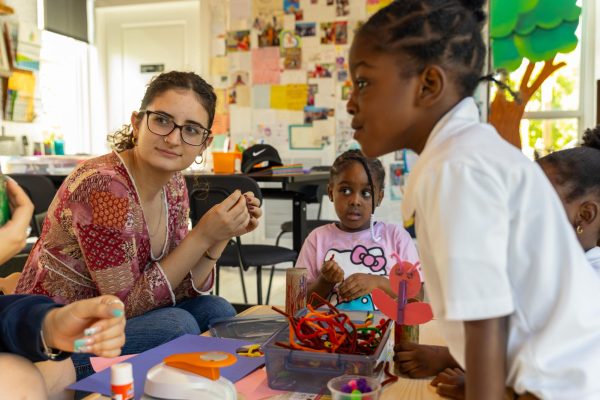
Keys said it “breaks her heart” to see that some of the children they work with come from households where “either they’re not given much attention” or older children are “taking care of their younger siblings.” All of the children can come to the readery for a game, a hug (of which Kumar gives out many), a lesson, or support.
“ It definitely is like a safe place for them (the children), which is something that they have said time and time again,” Rojas said.
The children are not alone in that feeling.
“It’s not only their safe space,” Cleary said. “It’s ours as well.”

